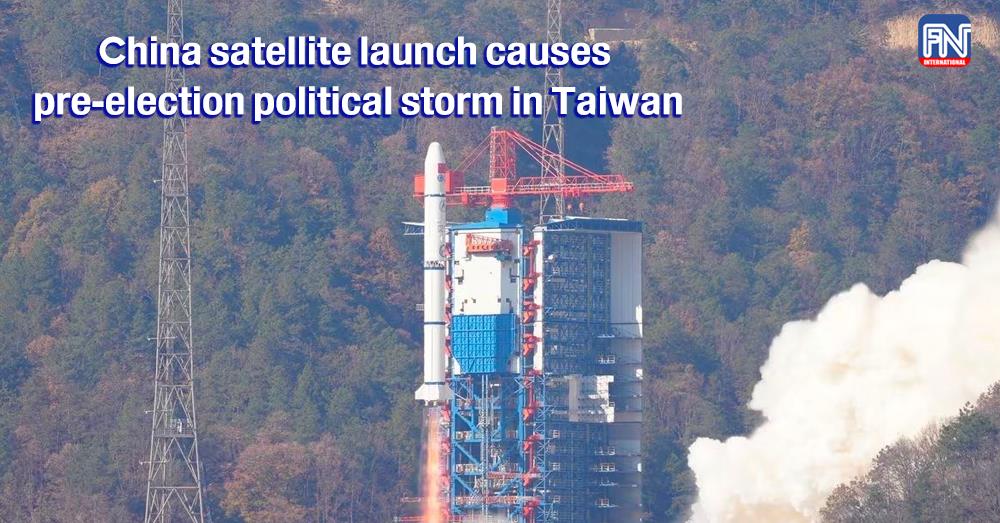TAIPEI, Jan. 10 (Reuters) - The launch of a Chinese satellite that flew over Taiwan, prompting an erroneous air raid alert, sparked a political storm on the island on Wednesday about China's motives only days out from presidential elections.
Taiwan's presidential office said it did not consider the launch of a Chinese satellite whose rocket flew over southern Taiwan an attempt at interference ahead of the poll, but the main opposition party questioned why the alert was issued.
On Tuesday, the government issued a mistaken air raid alert after the Chinese rocket carrying a science satellite flew over southern Taiwan at an altitude of more than 500 km (310 miles). The defence ministry later apologised for the wrong translation in English which used the word "missile".
Taiwan's presidential office, responding to questions on whether it considered the satellite launch election interference, said it did not think there was a political motive.
While the rocket launch sparked an erroneous air raid alarm, Taiwan, which China views as its territory over the strong objections of the government in Taipei, has repeatedly accused Beijing of trying to interfere in the vote, whether via military, political, economic or other means. China has labelled those allegations "dirty tricks".
The ruling party's presidential candidate Lai Ching-te supported the Taiwan defence ministry's publication of a chart showing the flight path of the satellite crossing over southern Taiwan.
"This information was based on the people's right to know, and to not let the public misunderstand. At the same time, if any wreckage is discovered then it could be handed over to the relevant authorities. This is something that should be done," he said during campaigning on Wednesday.
China's Taiwan Affairs Office said in a written response to Reuters on Wednesday that the satellite launch was a regular annual arrangement and had "nothing to do with the Taiwan election."
China made two satellite launches on consecutive days in early December from a launch site in Inner Mongolia. Neither of those had flown over Taiwan or triggered an alert.
Jonathan McDowell, an astrophysicist at the Harvard-Smithsonian Center for Astrophysics who tracks space launches, told Reuters the first stage of the rocket landed well inside China, and the second stage flew over Taiwan at a height comparable to that of the International Space Station.
"It was far up in space and indeed entered orbit well before crossing the coast of mainland China. So I think this is an overreaction by Taiwan. Satellites fly over Taiwan every day," he said.

Photo from Reuters